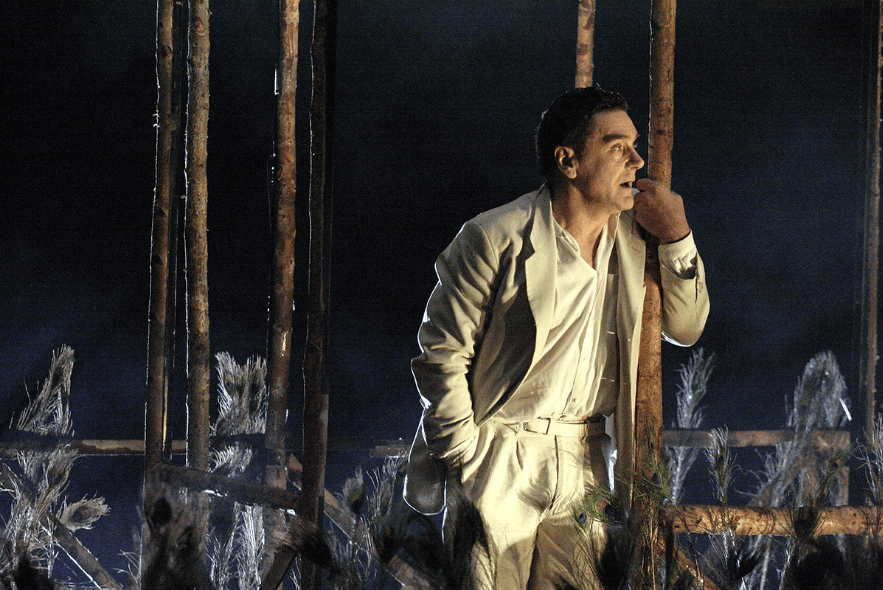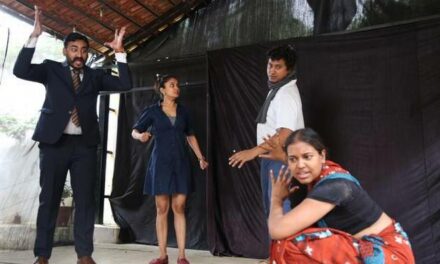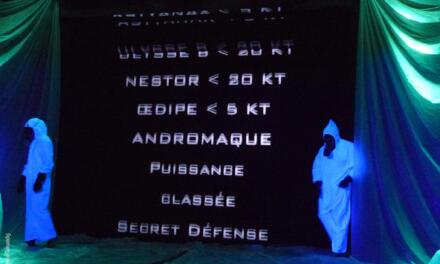“My timing in life has always been suspect,” admitted producer Eddie Aronoff, “and our launch of Stage Russia at the outset of an apparent new Cold War doesn’t exactly break that trend, but all the same, it’s kind of perfect.”
Stage Russia is wrapping up its first season, having delivered four filmed performances from Moscow’s most renowned theater companies into cinemas across the U.S., U.K., Ireland and Latin America.
“Obviously, our core audience at this point are Russian expats around the world, but these plays are so universal in their themes, and so highly skilled, that they transcend and even, in a way, mend perceptions of Russia as, as John McCain refers to it, nothing more than a ‘giant gas station.’”
Aronoff, an American who moved to the Russian capital and has been teaching English there for the last eight years, began the Stage Russia project with this intercultural aspect in mind. “More or less, no one back home could remotely reconcile my decision to live here. The best way to explain it, I guess, was to put it up on a big screen and have Sergey Makovetskiy spell it out for me.”
The result is a project that has spread from a handful of cinemas in the U.S. to a dozen in the U.K. and Ireland, another five dozen in Latin America, a group of venues in Eastern Europe and Israel, and planned expansion into China and Australia. There’s also a recently launched collaboration with Kanopy Streaming, which provides hundreds of thousands of university students around the world access to Stage Russia’s titles, as well as more avant-garde works from the likes of Moscow’s ElectroTheatre’s Boris Yukhanonov and archival performances originally filmed and presented by Russia’s Culture Channel.
“We’ve become an outlet for any Russian theatre looking to get their work out into the mainstream,” Aronoff added. “Touring, especially from Russia, where visas are necessary, is expensive and limited just to the select few here who have the resources to do it. Filming and distributing these works is a simple, relatively inexpensive solution. I know it sounds hyperbolic, but the world really needs to experience Tuminas and Ginkas and Zhenovach and Butusov.”
The question remains whether filmed performances can match the thrill of an evening at the theatre. Despite successful HD presentations from the Met Opera and London’s National Theatre programs, it’s clear that something is lost in the transfer from stage to screen. Aronoff agrees and disagrees. “The goal, I think, isn’t to match the emotional connection one has watching a live performance, which admittedly isn’t possible, but to utilize the assets that filming offers; the close-up, for example, and the ability to retell the story in the editing room. Some of the theatre directors we work with love the idea of being able to create this new version of the performance.”
Stage Russia’s first season, featuring productions from Moscow’s venerable Vakhtangov Theatre (Eugene Onegin and Anna Karenina), the equally renowned Moscow Art Theatre (The Cherry Orchard) and Kama Ginkas’ Moscow Young Generation Theatre (The Black Monk), continues through the summer, both in first-run screenings and encore presentations. For a listing of cities and information on the performances, including screening dates and showtimes, visit www.stagerussia.com.
This post was written by the author in their personal capacity.The opinions expressed in this article are the author’s own and do not reflect the view of The Theatre Times, their staff or collaborators.
This post was written by Lionel Mandrake.
The views expressed here belong to the author and do not necessarily reflect our views and opinions.


















